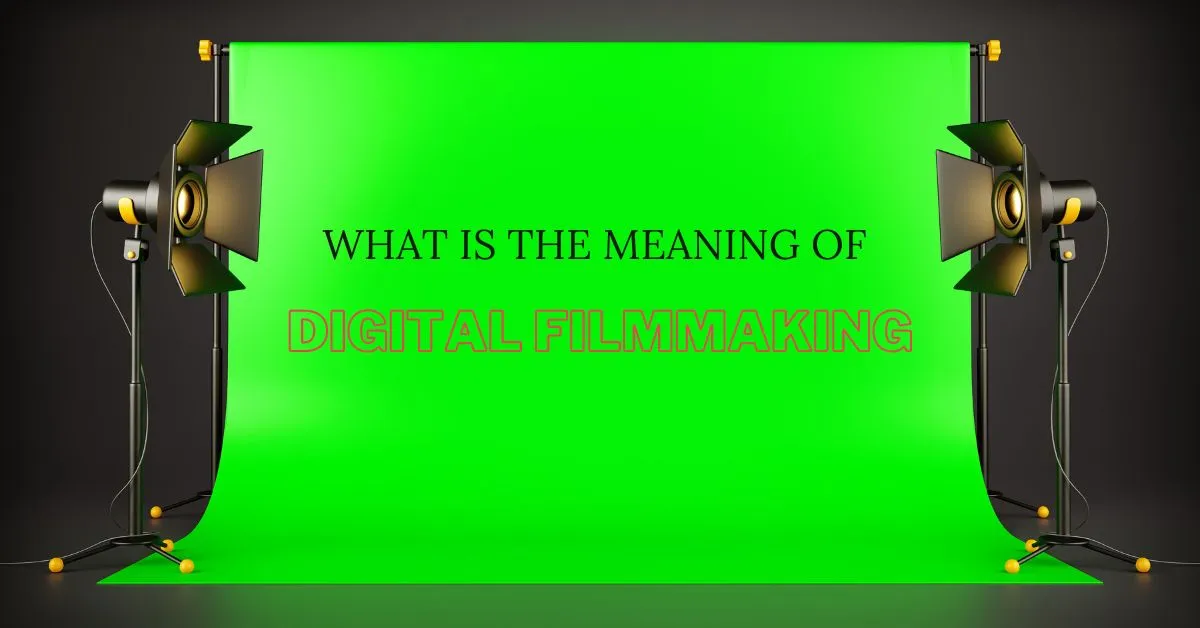Introduction
In the ever-evolving landscape of film production, digital filmmaking has emerged as a
transformative force, revolutionizing the way movies are created, captured, and shared. But what
exactly is digital filmmaking? In this blog post, we will delve into the meaning of digital
filmmaking, its advantages over traditional methods, and its profound impact on the world of
cinema. Join us on a journey to unravel the magic behind this captivating art form.
Understanding Digital Filmmaking:
Digital filmmaking refers to the process of capturing, editing, and distributing movies using
digital technologies and equipment, as opposed to traditional analog methods. Instead of using
physical film reels, digital cameras record images and store them in digital formats such as
memory cards or hard drives. These digital files can be easily transferred, manipulated, and
edited using sophisticated software tools, bringing unprecedented flexibility and efficiency to
the filmmaking process.
Digital filmmaking refers to the process of capturing, editing, and distributing movies using
digital technologies and equipment, as opposed to traditional analog methods. Instead of using
physical film reels, digital cameras record images and store them in digital formats such as
memory cards or hard drives. These digital files can be easily transferred, manipulated, and
edited using sophisticated software tools, bringing unprecedented flexibility and efficiency to
the filmmaking process.
- Cost-Effectiveness: Digital filmmaking eliminates the need for purchasing
and developing expensive film stock, significantly reducing production costs. The ability to
preview shots instantly and make real-time adjustments also saves time and resources.
- Enhanced Workflow: Digital cameras offer greater flexibility in terms of
shooting options, allowing filmmakers to experiment with different settings, angles, and
effects. The instant playback and review of footage enable on-set adjustments, ensuring the
desired results are achieved.
- Post-Production Flexibility: Digital footage can be easily manipulated and
edited using advanced software tools. Filmmakers have precise control over color grading,
visual effects, and sound design, enabling them to fine-tune their creative vision during
post-production.
- Accessibility: Digital cameras are more compact and portable compared to
their analog counterparts. This allows filmmakers to shoot in remote locations or tight
spaces, expanding the possibilities for storytelling.
- Distribution and Accessibility: Digital files can be easily shared and
distributed through online platforms, streaming services, and digital theaters. This
accessibility broadens the audience reach and democratizes the filmmaking process,
empowering independent filmmakers and diverse voices to showcase their work to a global
audience.
Impact on the World of Cinema:
The advent of digital filmmaking has brought about significant transformations in the world of
cinema:
- Creative Exploration: Digital technology has unleashed boundless
creativity, empowering filmmakers to experiment with visual effects, non-linear
storytelling, and immersive experiences that were once limited by the constraints of analog
filmmaking.
- Democratization of Filmmaking: Digital tools have lowered the barriers to
entry, allowing aspiring filmmakers to create high-quality productions with more accessible
and affordable equipment. This has fostered a more diverse and inclusive film industry.
- Technological Advancements: The rapid advancement of digital technology
has led to the development of high-resolution cameras, virtual reality, augmented reality,
and CGI (Computer-Generated Imagery), expanding the possibilities for storytelling and
visual aesthetics.
- Preservation and Restoration: Digital archiving and restoration techniques
have made it possible to preserve and revive classic films, ensuring that cinematic
masterpieces can be enjoyed by future generations.
Conclusion:
Digital filmmaking has redefined the art and craft of storytelling on the silver screen. With its
cost-effectiveness, flexibility, and creative possibilities, it has democratized the filmmaking
process and opened doors for new voices and visions. As technology continues to evolve, the
realm of digital filmmaking will undoubtedly shape the future of cinema, enabling captivating
stories to be told in ever more innovative and immersive ways.


